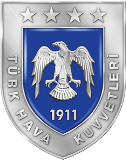
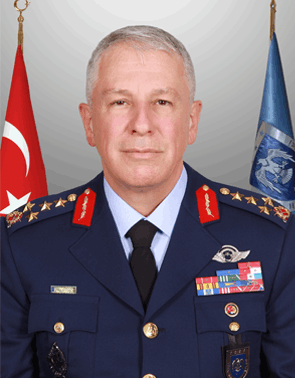
General Ziya Cemal KADIOĞLU
TURKISH AIR FORCE COMMANDER
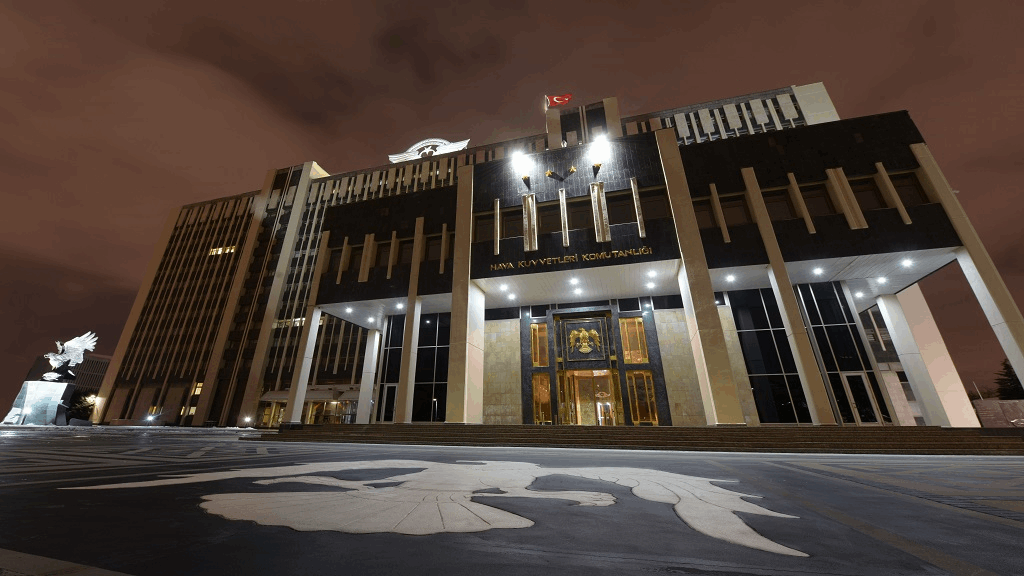 |
The Air Force Command was established with the purpose of preventing treats and dangers likely to be received via air against Turkish country and Turkish Nation, and facilitating the way to success of the duties of Land and Naval Forces during a possible war. Headquarters of the Turkish Air Force (TURAF) is located in Ankara. Main duty of the Air Force Command is to deter the enemy from its aggressive intention via its arms and means with superior velocity and brisance, to counteract enemy aircraft rapidly as soon as they enter Turkish airspace in case of an attack against the country, to discourage and dishearten from maintaining the war by destroying the vital military targets of the enemy country and to ensure that war is won within the shortest time possible with least casualties.
|
| Fulfilling those main duties by executing various operations and functions both at peace and in wartime, the Air Force Command entered an intense period of working in order to reach the level of contemporary world aviation and to take its part more efficiently in home defense, after being re-established under the leadership of Atatürk during the Republic Period and, starting from that period, it has reached today’s peak point and power with the help of great efforts and endeavors exerted. In addition, with a view to assure that the achieved improvements and progresses are sustained, or, in other words, to keep pace with this age, large-scale reorganizations were made not only in the existing organization and but also in numerous services, operations and systems in different periods and this status achieved continuity. | 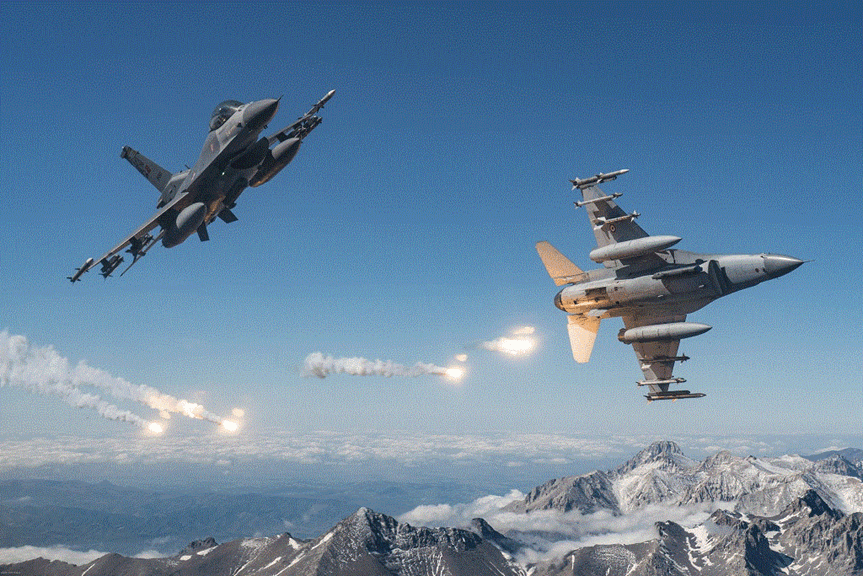 |
For the purpose of promoting the Turkish Air Force both at home and abroad and endearing aviation by enhancing relationships with the public, call-sign of the Acroteam squadron, organization approval for which was received on 11 September 1992, was designated as Turkish Stars and this call-sign was published on 11 January 1993. On 18 June 1993, which is the closing date of 1993 competition badges of the Air Force Command, Turkish Stars Acroteam made of NF-5 A/B planes performed their first show at Ankara on 18 June 1993.
The Air Force Command personnel is composed of officers, non-commissioned officers, military students, civil servants, rank and file, under two main groups as regular personnel and reserve personnel.
Furthermore, the personnel serving for the Air Force Command is divided into various branches and specialties within the two main corps as combat corps and auxiliary corps, and those branches and specialties are determined according to the assignment requirements of the Turkish Air Force.
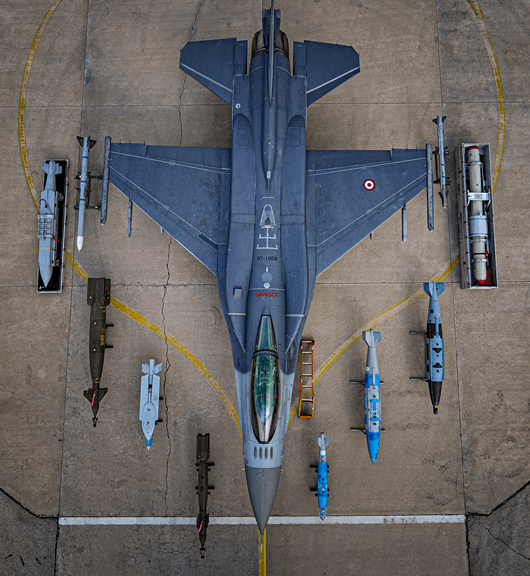 |
Officer requirements of the Turkish Air Force are procured through Air War Academy as a main source. Students, who are accepted as cadets for Air War Academy following their civilian or military high school education, are subjected to a 4-year education at undergraduate level in the Air War Academy.
Those cadets graduate with lieutenant rank and as pilot cadets after acquiring mental and physical maturity, leadership characteristics required for military assignments, sufficient information and skills in military, technical and social sciences, ability to follow up and understand the importance of problems faced by his country and the world by respecting Ataturk’s principles and reforms, as well as the ability of adapting to the requirements of contemporary age and technology. |
Thereafter, before being assigned to various units of Air Force as pilots, cadet pilot lieutenants complete their flight trainings. Officers, who fail in completing their flight trainings and quit flying due to a number of reasons, are assigned to various units of Air Force after being subjected to training at Air Corps Schools and Technical Training Central Command in other needed corps and branches.
In addition to the abovementioned issues for meeting the officer need of the Turkish Air Force, those chosen from among the ones who have completed at least 4-year faculties and colleges on their behalves and in their names and those attending military student command of faculties and colleges as military students on behalf of the Air Force Command are appointed to corps which Air Force do not raise at Air Force Academy as auxiliary corps active duty officers following their graduations, according to article 14 of the Turkish Armed Forces (TAF) Personnel Law No.926. Besides, non-commissioned officers who come to fore among their peers are assigned with the second lieutenant rank in case they succeed after receiving education at Air Corps Schools and Technical Training Central Command, according to the test results and in compliance with the articles 14 and 109 of the Turkish Armed Forces Personnel Law No.926 and the provisions of the regulation on office registry related with the subject.
| Those selected by examination out of the officers who are in their second years of senior lieutenant and captain at various units and institutions of the Air Force Command graduate as staff officers after being subjected to a graduate-level training at the Air War College for 2 years. Lieutenant need of the Turkish Air Force is met by being subjected to education and training at the non-commissioned corps schools within the body of Air Corps Schools and Technical Training Central Command. After the non-commissioned officer cadet students complete the said education and training, they take office at various units and institutions of the Air Force by rising in rank to sergeant. | 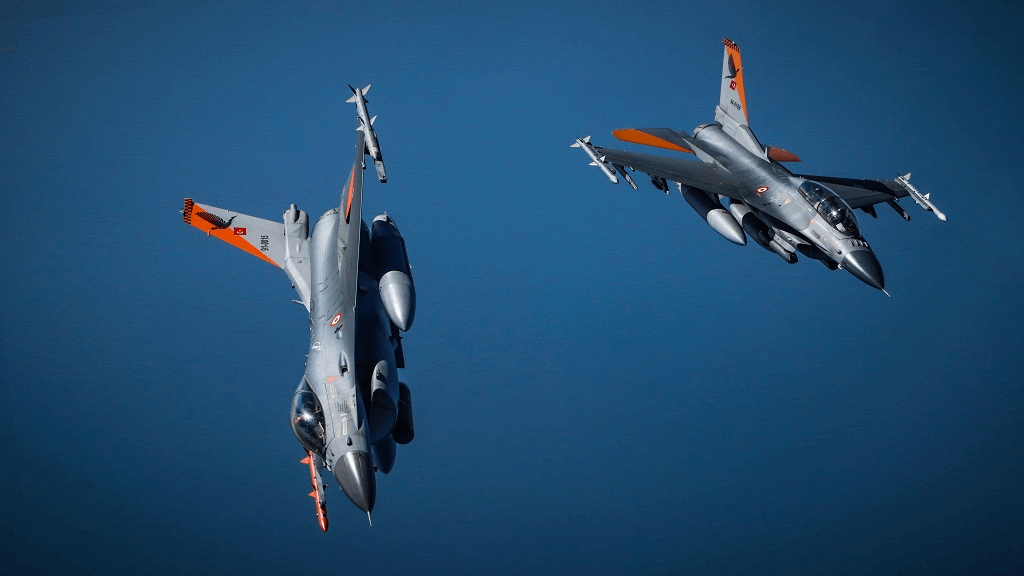 |
Need of the Turkish Air Force for ranks and files is met by subjecting Turkish youth, who are liable for military service according to the military law, to training at the Airmen Training Brigade Command.
The personnel affiliated with the Turkish Air Force, excluding civilian personnel, wears blue uniforms.
Until 1961 various eagle figures were used as the symbol of the Turkish Air Force and starting from 1 June 1961, “Seljuk Eagle”, in place of the previously used eagle figures, started to be used as the symbol.
14 April 2025 Monday
Participation In The 40th Space Symposium11 April 2025 Friday
Aeromedical Research and Training Center09 April 2025 Wednesday
Combatant Air Force Commander General İsmail GÜNEYKAYA participated in the NATO Air Force Chiefs' Symposium07 April 2025 Monday
Exercise Red Flag-2025/226 March 2025 Wednesday
